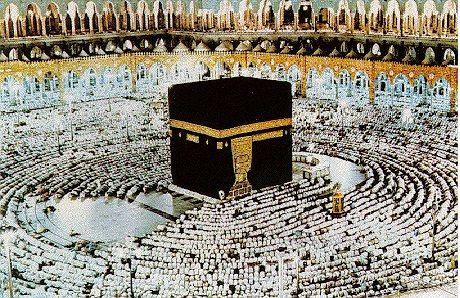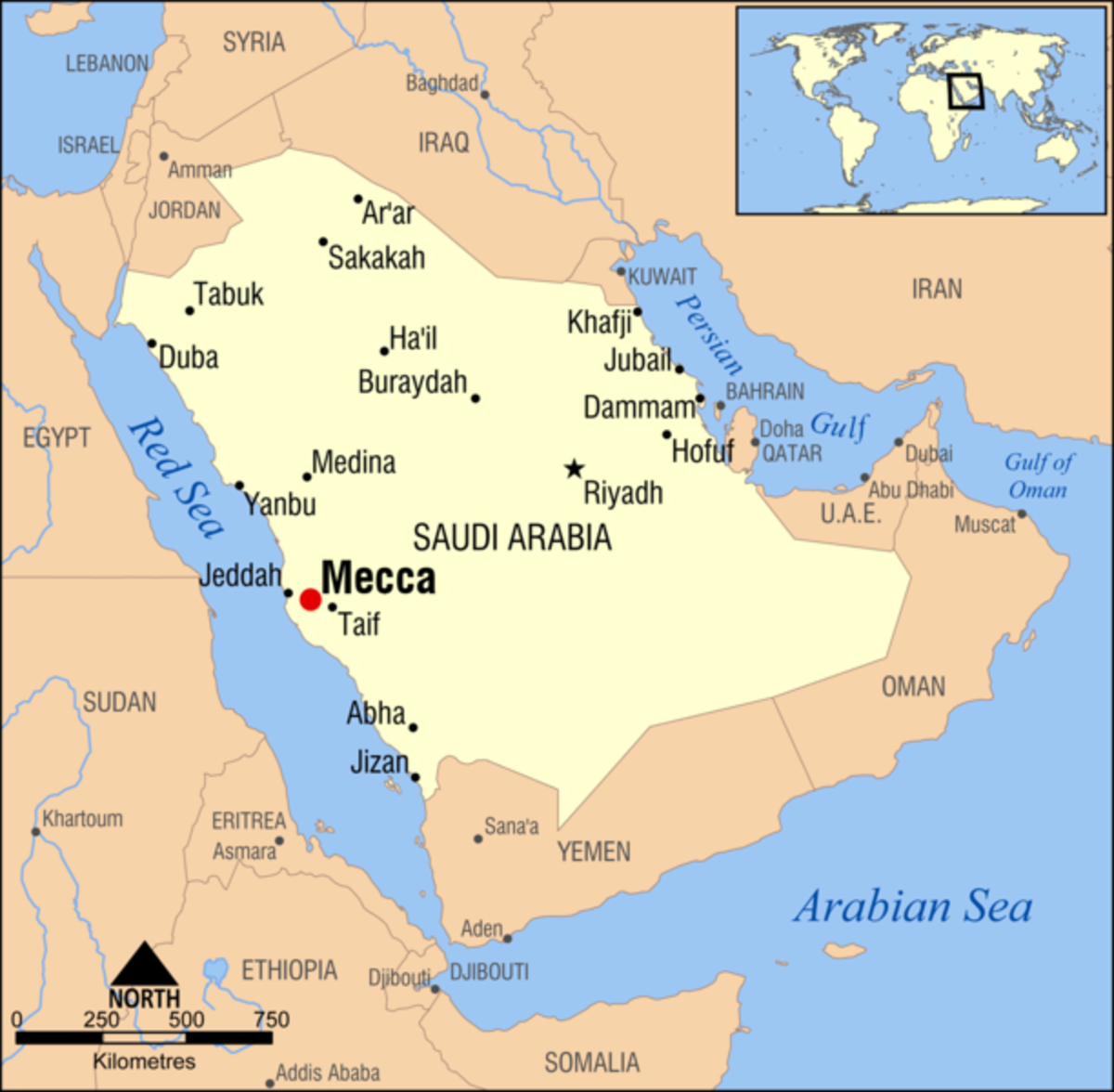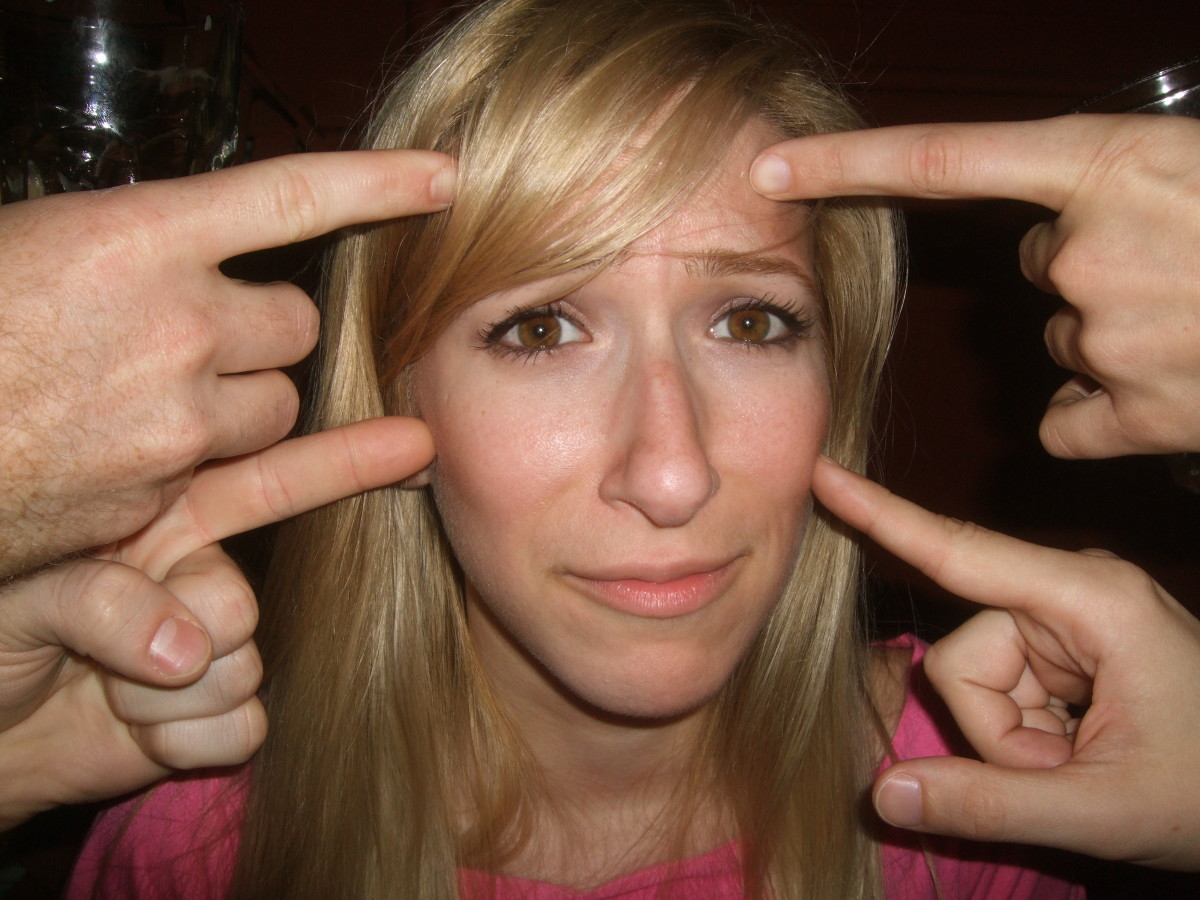Islamic Religion Issues In Society

Severance of the Islamic Religion
It all started in 610 A.D, when Muhammad, a merchant born in the city of Mecca and know as a prophet, received his first message from Allah. The beginning of the Muslim religion dates all the way back to the early 600’s A.D. Muhammad was meditating at the mountain top in Mecca when he was visited by the angel Gabriel. “According to the Muslim belief, he heard a voice saying, ‘Recite!’ Muhammad replied, ‘What shall I recite?’ The voice explained: ‘Recite in the name of your God, the Creator, who created man from clots of blood.” (Ellis, Elisabeth & Esler, Anthony pg. 253) Muhammad then began to recite one of many messages believed to come from the God Allah. Muhammad kept all these messages from Allah very personal, writing them in a book known now as the Qur’an and telling only his relatives. Slowly, Muhammad’s encounters with Allah started to get out and the citizens started to become interested. It is said that around 3 years after his first message, “Muhammad is believed to have received instructions from Allah to go public with his message and openly condemn the paganism and idolatry of Mecca.” (Rieber, Ney pg. 5) After sharing the message of Allah with Mecca, the religion Islam started to expand slowly. Although, it took a long time for Islam to spread due to many threats towards its followers, it began to grow throughout Arabia and around its borders. In 632 A.D, the great prophet Muhammad died. Not only was this a very tragic event for the Islamic religion, but it presented Muslim’s with political conflict.
After the death of Muhammad the Islamic religion didn’t know who was rightfully supposed to take his place. “Muhammad left no son was perhaps of less moment than his neglect or refusal to nominate a successor.”(R. A. Nicholson pg. 1)
This became a great political conflict for Islam. The death of Muhammad led to the severance of the Islamic religion. Through this two main groups formed known as, Sunni and Shia.
Since, Muhammad left no successor to take his place, argument arose and a group known as Shia Muslims formed. The Shia believed that Muhammad was the chosen one and therefore the descendants of Muhammad were the rightful ones to take his place. They believed descendants were exquisitely inspired and no one could be as good of a caliph or ruler then those of which who were related to Muhammad.
Sunni Muslims were the other group that formed after Muhammad’s death. Sunni Muslims believed someone had to take Muhammad’s place, the only question was, who? There beliefs varied from the Shia. The Sunni thought that the next caliph should be chosen by those leading the Islamic community. They also believed that it should be one who is a quintessence of the religion. “The Sunni believed that inspiration came from the example of Muhammad, as recorded by his earlier followers.” (Ellis, Elisabeth & Esler, Anthony pg. 258) The Sunni disregarded any descendants of Muhammad as deserving his place because he had only a daughter and her husband wasn’t directly related so to them he wasn’t worthy. Also Muhammad never spoke of nominating a descendant as his successor.
From 632 A.D to 656 A.D Sunni hadn’t had much success in having any say on who became Caliph. Shia was the controlling group at the time and seemed to only keep becoming more powerful. The Shia chose the caliph, three relatives of Muhammad had gone through the position of caliph, Abu Bakr- 632 – 634 A.D, Umar - 634 – 644 A.D and Uthman Ibn Affan - 644 – 656 A.D, before the Sunni’s first major impact on Islam. In 656 A.D. Ali, son of Muhammad’s daughter was elected the fourth caliph. After elected the followers of Sunni assassinated him. They later killed his son as well in order to prevent him from becoming the next caliph. This was the beginning of the Sunni success. “Many other Shiites died in battle against Sunni, trying to install their candidates for caliph.” (Ellis, Elisabeth & Esler, Anthony pg. 258) The Sunni continued to fight and succeed throughout the following battles against Shia. The Sunni then became the dominant sect of Islam. They expanded the Islamic religion through the Umayyad dynasty. “After the death of Ali, the Umayyad family set up a dynasty that ruled the Islamic world until 750.” (Ellis, Elisabeth & Esler, Anthony pg. 258)
Although the Shia was the more dominant group immediately after Muhammad’s death, the Sunni became much more successful the long run. Both sects of the Islamic religion and are still eminent today and time has made there differences within religious practice, law, and daily life become much more distinguishable. Sunni is still the dominating group of Islam, “…Over 80 percent of the global Muslim population is of the Sunni branch.”(Global Security pg. 1) The political disagreements also exist to this day and are consistently causing the death of many people from both sects of the religion. Iraq is a prime example of the effect these disagreements continually have. Shia is the more dominant group in Iraq today, but previous Iraqi leader Saddam Hussein was Sunni. Saddam made constant attempts to decrease the Shia population in Iraq or at least end its expansion. He killed several its followers and anyone who drastically enhanced its expansion in the Iraqi society. Mohammad Sakr was one that was killed. “His Friday prayers attracted hundreds of thousands of worshippers when he began to make subtle political demands on behalf of the Shia population for greater religious and political freedom. This kind of behavior was not tolerated under Saddam. He was murdered in 1999.” (Hari, Johann pg. 4)
The separation of the Islamic religion dating back to around 632 A.D, has had an enormous impact on worldwide society. It has led to the death of many of its followers both Sunni and Shia and continues to cause battles between both groups. However, it has also helped spread Islam, which has become today the second largest religion in the world, with an estimated 1.5 billion followers. In all, the death of Muhammad caused the severance of the Islamic religion which led to a very positive and negative effect on history and present day.








